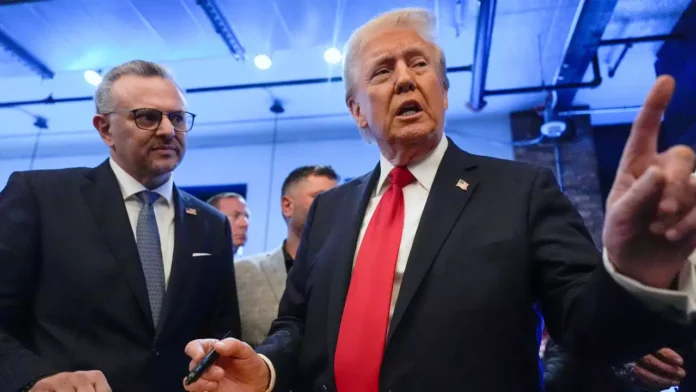Washington: On his first day back in office as the 47th President of the United States, Donald Trump signed a series of executive orders aimed at dismantling key Biden-era policies and reshaping federal priorities. These actions touched on workforce management, climate policy, immigration, and regulatory reform, underscoring Trump’s commitment to his “America First” agenda.
Among the notable changes, Trump issued a directive mandating that federal employees return to in-person work five days a week, effectively ending widespread remote work arrangements. This policy aligns with his campaign promise to reduce what he deemed an inefficient “work-from-home culture.” Additionally, he reinstated a federal hiring freeze, with exceptions for roles in national security, public safety, and the military, to further streamline government operations.
Trump also signed an executive order focused on “restoring freedom of speech,” targeting what he described as federal censorship. This move follows accusations by Trump and his allies that the previous administration stifled free expression on digital platforms.
Exit from Paris Climate Accord
Echoing his 2017 decision, Trump withdrew the United States from the Paris climate agreement. The accord, designed to combat global warming by keeping temperature rises below 2°C, has been a cornerstone of international climate strategy. Trump criticized the agreement as detrimental to American economic interests, stating, “The United States’ ability to balance economic growth with environmental stewardship should serve as a global example.” Environmental advocates and global leaders warned that the withdrawal could undermine international climate efforts.
Hardline Stance on Cuba
Reversing a Biden-era decision, Trump reinstated Cuba’s designation as a state sponsor of terrorism. This comes just days after Biden removed the label as part of a Church-mediated agreement to release political prisoners in Cuba. Trump’s re-designation signals a continuation of his firm stance on the island nation’s human rights record.
Regulatory Freeze
Trump issued a freeze on new or pending federal regulations, a move aimed at curbing what he described as bureaucratic overreach. While such freezes are typical during administrative transitions, Trump’s directive extends to reversing a significant portion of Biden-era regulations, with exceptions for emergency situations involving health, safety, and national security.
Other Key Actions
- Halting 78 Biden-era executive orders.
- Addressing inflation through department-level strategies.
- Restoring the names “Gulf of America” and “Mount McKinley” to the Gulf of Mexico and Mount Denali, respectively.
- Mandating flags at full height on future Inauguration Days.
- Declaring a national emergency at the US-Mexico border and reinstating stringent asylum policies.
- Rolling back diversity, equity, and inclusion (DEI) initiatives and eliminating transgender protections in federal policies.
Domestic and International Reactions
The withdrawal from the Paris accord drew criticism from environmentalists and world leaders, with Laurence Tubiana, an architect of the agreement, warning that the move could erode the U.S.’s role in global climate leadership. Domestically, public opinion remains divided, with many Republicans supporting the shift while others voice concerns about the long-term implications for climate strategy and international relations.
Economic and Energy Policies
Trump pledged to ease regulations on oil and gas production, calling for increased drilling and opposing Biden’s push for electric vehicles. He also plans to tackle inflation through a comprehensive government-wide strategy while deferring immediate tariff actions against major trading partners like China, Mexico, and Canada.
Looking Ahead
Trump’s return to the presidency has set a bold tone, marked by immediate policy shifts that reflect his commitment to advancing an “America First” agenda. His administration is expected to prioritize economic growth, immigration control, and a rollback of progressive policies implemented during the Biden years.





